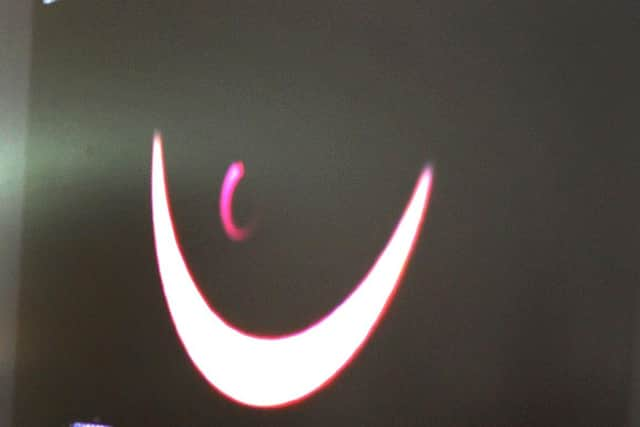Solar eclipse on Monday, April 8: how much will we see in Sussex and Surrey?
and live on Freeview channel 276
According to the Royal Astronomical Society the most dramatic version of the eclipse will be across North America.
The society said the eclipse has been dubbed ‘the Great American Eclipse’ because it will be fully visible from Mexico’s Pacific coast to American states including Texas, Illinois, Ohio and New York.
Advertisement
Hide AdAdvertisement
Hide AdBut the Royal Astronomical Society said parts of the UK might be able to see a partial eclipse too. This will be between about 7.50pm and 8.50pm in Edinburgh, Glasgow, Cardiff, Belfast, Manchester and Liverpool.


However, Dr Nicola Baresi, an astrodynamicist at the University of Surrey, is excited. He said this eclipse could unlock further scientific investigations by providing scientists with more total eclipse data from space.
Dr Baresi said: “The intense preparations by scientists to ensure they maximise the data from today’s eclipse show how important these special cosmic events are for our understanding of the sun. What if we didn’t have to wait a year or two for the next few minutes of total eclipse?”
Advertisement
Hide AdAdvertisement
Hide AdThe University announced on Monday that Dr Baresi and his team are working with UCL’s Mullard Solar Space Laboratory, Aberystwyth University, Surrey Satellite Technology Ltd, and international partners from the US and Australia. They said they are working on an ‘innovative satellite mission that aims to recreate total solar eclipse conditions in space once a month using the Moon as a natural occulter’.
Dr Baresi said: “Our Moon-Enabled Sun Occultation Mission (MESOM) concept would provide scientists with high-quality data of the inner part of the Sun’s corona. It would fill a gap in currently available datasets and enable a better understanding of the Sun’s atmosphere.”
The University said that catching total eclipses in space would be better for scientific study because there would not be atmospheric disturbances in space that could cause distortions. A spokesperson said: “The total eclipses caught by MESOM would also last much longer than those on Earth.”
Comment Guidelines
National World encourages reader discussion on our stories. User feedback, insights and back-and-forth exchanges add a rich layer of context to reporting. Please review our Community Guidelines before commenting.
